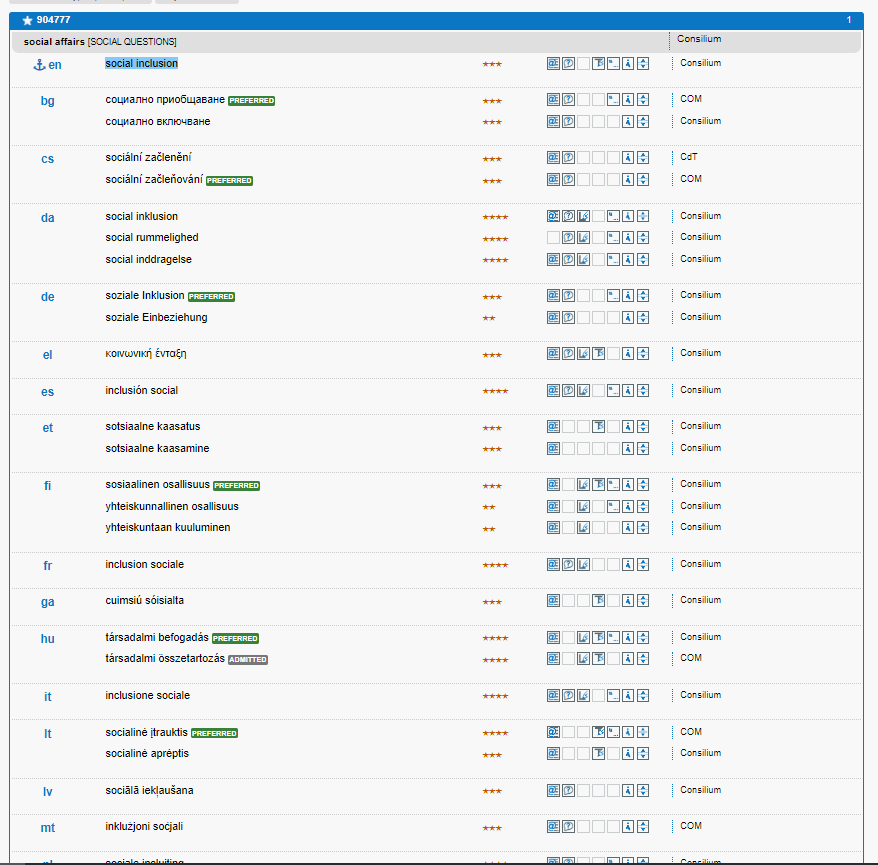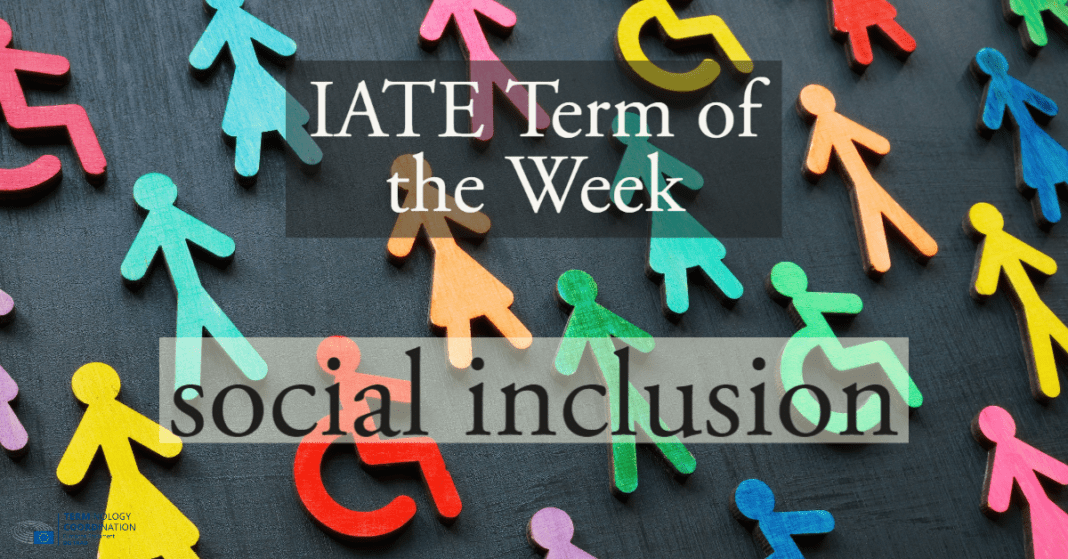Social inclusion, a fundamental objective of the European Union, seeks to ensure equal access to opportunities and resources for people who might otherwise be excluded or marginalised. In IATE, this term is defined as a “process which ensures that those at risk of poverty and social exclusion gain the opportunities and resources necessary to participate fully in economic, social and cultural life and to enjoy a standard of living and well-being that is considered normal in the society in which they live, ensuring that they have greater participation in decision making which affects their lives and access to their fundamental rights”.

This focus is reflected in the EU’s founding treaties and is an essential part of its policies and actions. The EU institutions work diligently to prevent social exclusion through a variety of means, striving for equality and respect for human dignity. The European Social Fund (ESF), for instance, is a prime instrument the EU uses to foster social inclusion, improving employment opportunities and promoting fairer societies. The ESF allocates billions of euros to projects tackling issues such as poverty, discrimination, and lack of opportunities in education and the labour market.
The European Pillar of Social Rights is another initiative that reiterates the commitment of the EU towards social inclusion. It sets out 20 key principles and rights to support fair and well-functioning labour markets and welfare systems, and is particularly concerned with vulnerable groups, including the elderly, migrants, and people with disabilities.
Furthermore, EU institutions promote social inclusion through legislation and directives, ensuring member states address discrimination and inequality in their national laws. For example, the EU’s anti-discrimination law, which prohibits discrimination on the grounds of sex, racial or ethnic origin, religion or belief, disability, age, and sexual orientation, is critical in this respect.
The EU is also fostering social inclusion in the digital sphere. The Digital Single Market strategy, aimed at ensuring access to online activities for individuals and businesses, also targets digital inclusion by reducing the digital divide and ensuring everyone can participate in the digital economy.
In conclusion, the EU institutions have a robust and comprehensive approach to preventing social exclusion, ensuring that everyone, irrespective of their background, has an equal opportunity to participate in society.
Bibliography
Council of Europe. (2023). Social inclusion. Retrieved from Youth Partnership: https://pjp-eu.coe.int/en/web/youth-partnership/social-inclusion
Eurofound. (2023). Social inclusion. Retrieved from https://www.eurofound.europa.eu/topic/social-inclusion
European Comission. (2023). European Pillar of Social Rights – Building a fairer and more inclusive European Union. Retrieved from Employment, Social Affairs & Inclusion: https://ec.europa.eu/social/main.jsp?catId=1226&langId=en
European Comission. (2023). Social inclusion. Retrieved from EU regional and urban development: https://ec.europa.eu/regional_policy/policy/themes/social-inclusion_en
Inclusion Europe. (2021). Fighting Social Exclusion and Poverty. Retrieved from Inclusion Europe: https://www.inclusion-europe.eu/social-inclusion/
Written by Carmen del Campo Hermida

Born in Madrid, Spain, Carmen holds a Double Degree in Translation and Interpreting and Bachelor in Global Communication. She has also studied a Degree on Content Marketing and Social Media. She has been combining her studies with some part-time jobs, which has allowed her to appreciate little things in life, such as spending time with her family and friends and enjoying her hobbies. She is keen on learning from other people and cultures and wishes to travel around the world someday.

